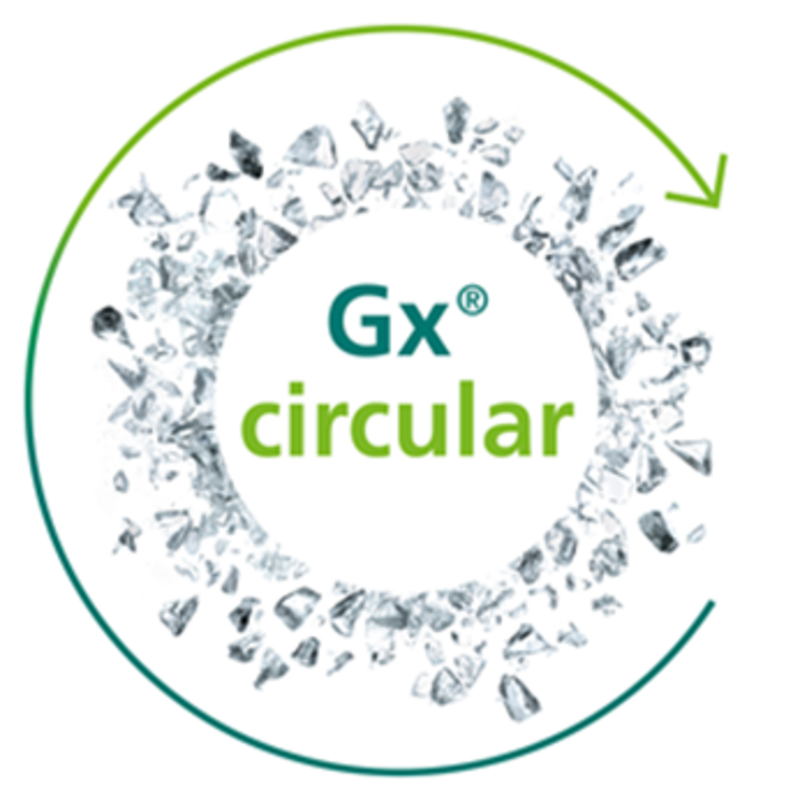Brussels/Düsseldorf, April 13, 2021. Gerresheimer is one of a total of 19 glass producers who have joined forces in a project with the aim of achieving climate-neutral glass production. In collaboration with the Ardagh Group, they want to drive forward the development, financing and operation of a hybrid electric melting furnace. To this end, an industrial-scale furnace is being built in Obernkirchen, Germany, for the commercial production of glass containers from renewable electricity. The demonstration facility will be built in 2022, with initial results available in 2023. Both technical and market-specific criteria for melting glass to produce glass packaging on a large scale will be evaluated. The companies participating in the Furnace for the Future project collectively produce more than 90 percent of the glass containers in the European Union, equivalent to more than 80 billion containers. Meanwhile, the F4F (Furnace for the Future) project was selected from 311 projects. This makes it one of the top 70 projects applying for second-stage support from the European Union's ETS Innovation Fund, one of the world's largest funding programs to promote and demonstrate innovative low-carbon technologies.
"We are pleased to participate in this joint project, which will certainly benefit the entire glass industry," says Andreas Kohl, Global Senior Vice President Operations Technics & Quality Moulded Glass at Gerresheimer. "As a producer of specialty glass, we have a great deal of experience in the use of electrical energy in the glass melting process and we would be delighted to be able to contribute this." Andreas Kohl himself has 25 years of professional experience in glass production and is responsible for the operations of all Gerresheimer production sites for container glass.
The glass industry already uses electric furnaces in a few of its 150 manufacturing plants across Europe, but only on a small scale and exclusively for the production of specialty glass. With the new technology, it will be possible to operate electric furnaces with more than 300 tons of capacity per day, which can produce any color of glass and use a high percentage of recycled glass. The use of recycled glass can help reduce CO2 emissions because less energy is needed to melt it down. For this reason, the 19 companies are investing in the development of this collaborative project to benefit from the experience gained with this technology.
"Parallel to this project, we at Gerresheimer are working on our own innovative developments of alternative melting methods for CO2 reduction, which will already be implemented at our plant in the next few years in parallel with the Ardagh project. Such developments are completely new designs which can only be implemented in a new furnace. In this context, we benefit from the fact that we are planning such a new tank construction almost every year in the coming years. That's why we have the exclusive opportunity here and now to do something that helps us to protect the environment," explains Andreas Kohl, adding that sustainability is an integral part of Gerresheimer's corporate strategy.
In the USA and India, Gerresheimer already uses twice as much electrical energy to process Type I borosilicate glass as comparable furnaces from most of the companies involved in the project and thus already has a head start in terms of experience. In Belgium, Gerresheimer operates its opal glass furnace fully electrically.
Use of PCR glass
Gerresheimer has been committed to the use of PCR glass for more than a decade and also processes it at some production sites. PCR stands for post-consumer recycling, which refers to the use of waste glass from households and businesses. The use of PCR glass helps to conserve natural resources because new glass is made from silica sand, sodium carbonate, calcium oxide, dolomite, feldspar, potash and iron oxide for coloring. The use of PCR glass also reduces energy consumption in the melting process.
More information about Furnace of the Future
Sustainability at Gerresheimer
About Gerresheimer
Gerresheimer is the global partner for pharmaceutics, biotech, healthcare and cosmetics with a very broad product range for pharmaceutical and cosmetic packaging and drug delivery devices. The company is an innovative solution provider from concept to delivery of the end product. Gerresheimer achieves its ambitious goals through a high level of innovative strength, industrial competence and concentration on quality and customer focus. In developing innovative and sustainable solutions, Gerresheimer relies on a comprehensive international network with numerous innovation and production centers in Europe, America and Asia. Gerresheimer produces close to its customers worldwide with around 10,000 employees and generates annual sales of more than €1.4 billion. With its products and solutions, Gerresheimer plays an essential role in people's health and well-being.

